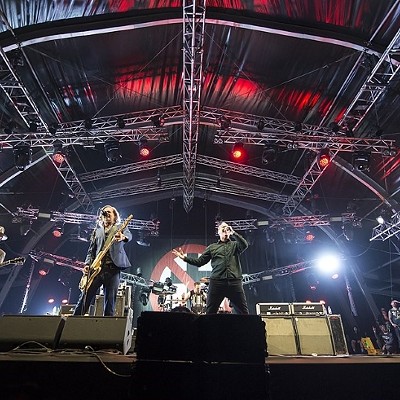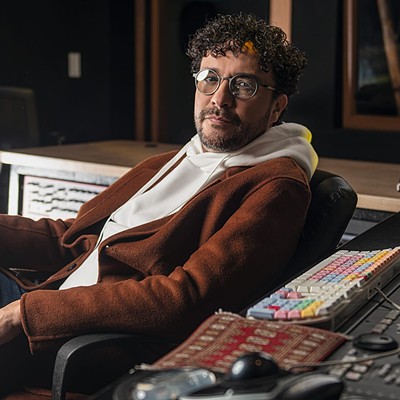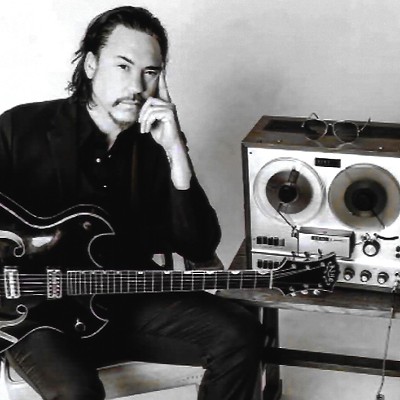Support Us
Houston's independent source of
local news and culture
account
- Welcome,
Insider - Login
- My Account
- My Newsletters
- Contribute
- Contact Us
- Sign out
Aftermath: John Williams' Score, Crafty Editing Redeem the Prequels - Somewhat - at Star Wars: In Concert
Chris Gray October 26, 2009 2:01PM
[
{
"name": "Related Stories / Support Us Combo",
"component": "11591218",
"insertPoint": "4",
"requiredCountToDisplay": "4"
},{
"name": "Air - Billboard - Inline Content",
"component": "11591214",
"insertPoint": "2/3",
"requiredCountToDisplay": "7"
},{
"name": "R1 - Beta - Mobile Only",
"component": "12287027",
"insertPoint": "8",
"requiredCountToDisplay": "8"
},{
"name": "Air - MediumRectangle - Inline Content - Mobile Display Size 2",
"component": "11591215",
"insertPoint": "12",
"requiredCountToDisplay": "12"
},{
"name": "Air - MediumRectangle - Inline Content - Mobile Display Size 2",
"component": "11591215",
"insertPoint": "4th",
"startingPoint": "16",
"requiredCountToDisplay": "12"
}
,{
"name": "RevContent - In Article",
"component": "12527128",
"insertPoint": "3/5",
"requiredCountToDisplay": "5"
}
]
Shortly after the release of Star Wars: Episode I - The Phantom Menace in 1999 - indeed, about 15 minutes or so into the movie - many (if not most) fans' hearts sank as they realized the 15-something years they had waited for George Lucas to fill in the narrative gaps in the backstory of Luke Skywalker, Princess Leia, Darth Vader, etc. had been spent in vain.
Lucas, it seemed, was more interested in creating new, action-figure-ready characters like Jar Jar Binks and showing off the CGI capabilities of his Skywalker Studios than bringing his modern-day myth to a satisfactory conclusion, though at least some of the problems had been rectified by 2005's Episode III - Revenge of the Sith. (The middle chapter, 2002's Episode II - Attack of the Clones, however, is still awful.) The wooden performances of many of the prequels' principals, especially Hayden Christensen in the pivotal role of teenage/twentysomething Anakin Skywalker/Darth Vader, didn't help either.
Luckily, few if any of the problems plaguing the second batch of Star Wars movies can be laid at the feet of John Williams' score.
As played by the outstanding Star Wars Symphony Orchestra Sunday evening at Toyota Center, leitmotifs like the Carmina Burana-like opening chorale and mixed-meter technical tightrope "Duel of the Fates" did more than underscore the film footage that had been recut into chronological vignettes interspersed with Anthony "C-3PO" Daniels' crisp narration. Williams' themes and orchestrations acted as their own narrative engines, capturing the moods and embellishing the characters much more than the movies' stilted dialogue ever did.
Under the baton of Mark Watters, the SWSO and choir also gave note-perfect performances of all Williams' familiar music from the original trilogy, from the still-thrilling opening trumpet fanfare - preceded, in a nice touch, by the equally familiar 20th Century Fox theme music - to a hot-jazz interlude accompanying scenes from that "wretched hive of scum and villainy," Mos Eisley spaceport, to the imposing "Imperial March" the ensemble played for the encore. These days, Williams' score may be a cash cow for orchestras (including our own Houston Symphony) looking to expand their subscriber base beyond the Mozart/Beethoven/Brahms bluehairs, but enough time has passed that it can stand on its own symphonic merits.
What struck Aftermath most of all Sunday evening was how similar Williams' score is to ballet, how his themes for different characters and events within the trilogies recurred throughout the program, each one diverting the spotlight to a different section of the orchestra - a jaunty oboe figure for the droids, melancholy woodwinds (principally flutes) for Yoda's theme, burly brass for anything Empire-related - not to mention the many explosions - and that magnificent French-horn melody that first crops up when Luke looks far beyond the Tatooine horizon.
And then we went back and rewatched the original Star Wars when we got home and were struck by something else - namely, how much of the movie's middle third, the part where Luke, Han Solo, Ben Kenobi and the droids rescue Leia from the Death Star, takes place against a backdrop of complete silence. Many Star Wars fans may wish that particular technique had been used a little more often in the prequels, and we can't exactly blame them.
Sunday night, though, through Williams' music, Watters and his orchestra found ways of making sense of Lucas' sprawling story that even its creator couldn't.
KEEP THE HOUSTON PRESS FREE...
Since we started the Houston Press, it has been defined as the free, independent voice of Houston, and we'd like to keep it that way. With local media under siege, it's more important than ever for us to rally support behind funding our local journalism. You can help by participating in our "I Support" program, allowing us to keep offering readers access to our incisive coverage of local news, food and culture with no paywalls.
Chris Gray has been Music Editor for the Houston Press since 2008. He is the proud father of a Beatles-loving toddler named Oliver.
Contact:
Chris Gray
Trending Music
- Country Rock Thrives with Gene Clark and Flying Burrito Brothers for Record Store Day
- Bruce Robison Is The Eternal Song Hunter
- Top 10 Butt-Rock Bands of All Time
-
Sponsored Content From: [%sponsoredBy%]
[%title%]

Don't Miss Out
SIGN UP for the latest
Music
news, free stuff and more!
Become a member to support the independent voice of Houston
and help keep the future of the Houston Press FREE
Use of this website constitutes acceptance of our
terms of use,
our cookies policy, and our
privacy policy
The Houston Press may earn a portion of sales from products & services purchased through links on our site from our
affiliate partners.
©2024
Houston Press, LP. All rights reserved.





